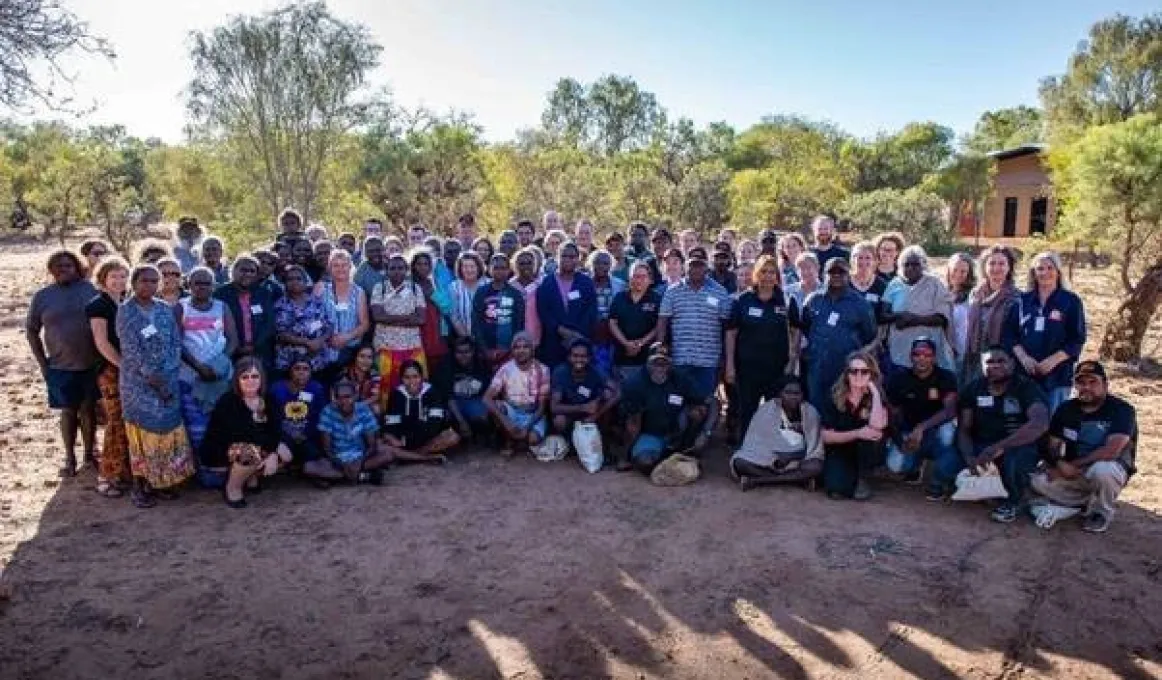The importance of sharing knowledge

The Stronger Communities for Children Knowledge Sharing Seminar supports Aboriginal people to make their communities safer.
A Stronger Communities for Children (SCfC) Knowledge Sharing Seminar was held in Alice Springs in March. Approximately 80 people from as far afield as Galiwin’ku in East Arnhem Land attended the two day event.
The biannual seminars facilitate the sharing of ideas and are also an opportunity to celebrate the successes of locally initiated, locally driven ideas that bring about real and sustained change.
The event comprised presentations from five communities on their experiences implementing SCfC to create safer and healthier communities for children and families. Local and interstate experts, including from Bourke in NSW, also shared information and experiences.
The Traditional Craft Centre project which began in October 2017 in Lytentye Apurte (Santa Teresa) demonstrates how a small community-led idea with small seed funding can grow into a highly successful project.
The project is dedicated to passing on traditional craft knowledge to the younger generation and employs six dedicated full-time craftsmen. By June it is intended the Centre will be a fully sustainable enterprise.
The Galiwin’ku Women’s Space Inc. (GWS) was formed in 2015 by a group of dedicated Yolŋu women ‘passionate about finding a solution to the ongoing domestic family violence being experienced within the Galiwin’ku community.’
Through its flexible funding model, SCfC has funded GWS initiatives that invest in local people to build their skills, knowledge and confidence. These skills equip them with the confidence to deliver change in their community and to train and educate families in the importance of harmony with one goal, and to eradicate domestic and family violence.
Alistair Ferguson, Executive Director of the Maranguka Justice Reinvestment Project, spoke about how a collective impact framework is working to bring about large-scale, lasting social change to Bourke.
The Project arose from community concerns over high levels of social disadvantage and rising crime and the need to work collectively to solve this social problem important to the hearts and minds of the people of Bourke.
Dr John Boffa, Chief Medical Officer, and Roxanne Highfold, Research Officer, of Central Australia Aboriginal Congress, spoke on using the Ages and Stages Questionnaire (ASQ) TRAK, to monitor the developmental progress of babies and young children.
The tool helps to identify developmental delays early and organise timely and targeted support for the child. The evidence collected enables organisations using it to understand if interventions are working, and to champion for services and funding to best meet the developmental needs of children.
The seminar was a great success and confirmed that the place based initiatives and the exchange of ideas, knowledge and experience is essential to improved outcomes in communities and society as a whole.
Find out more
For more information, see Stronger Communities for Children (SCfC) or contact Linda Ivatts.